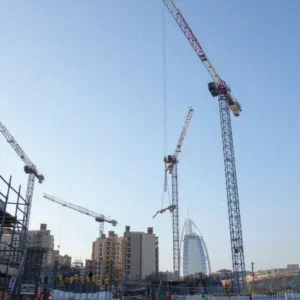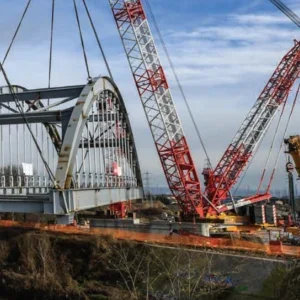The business was established in 1945 in Trinidad by my grandfather Joseph Lutchmansingh, who eventually placed control of the business in the hands of my late father, Keith, and his younger brother, Ansel. They were both very involved in the business from an early age, before the age of 10 to be more specific, taking firm positions in the company when they finished high school. Postsecondary education was out of the question as the business was in a key phase of development and time simply was insufficient.
Since those early days, the business has evolved tremendously. To begin with, much of the transportation work we did was in the area of commodities, such as sugar and rice. However, when the first haulage containers began to arrive in Trinidad, the direction of Paramount changed; this became even more pronounced as the oil and gas industry began to develop.
We established relationships with firms who were coming to the island for construction work, bringing with them cranes and other material handling equipment that was not available locally at the time. By eventually purchasing their assets, we began to slowly expand our services and develop the lifting capabilities in Trinidad. Shortly thereafter, we purchased a number of new Link-belt machines, the largest being an H8258 with a capacity of 185t, the largest crane in the Caribbean in the mid 1970’s. We continue to use this machine to this date.
By the early 1980’s, European and North American firms that were in the habit of bringing equipment over to Trinidad for use on construction projects quickly found that this was no longer necessary as our fleet of equipment continued to grow significantly. By this time, oil and gas sector construction was booming and we had definitely found a niche that facilitated our growth and diversification.
Between 1985 and 2007, we enjoyed a period of tremendous growth and we continued to expand and diversify. During this period, multiple projects were being executed simultaneously, not only in the petro-chemical sector, but also in manufacturing and major infrastructural works. Also during this period, we began undertaking projects regionally and internationally, and it is that foresight that has allowed us to weather the storm that the recent recession has brought.
Latin America appealed to us as a destination, as it was close enough to transport equipment relatively easily, and cheaply, from our headquarters. We now have offices and a rental fleet in Chile and Argentina, and our business there continues to grow.
We also have crane fleets in Ghana, West Africa, and other Latin American countries, including Columbia and Peru. It is no secret that the Latin American economies are experiencing high levels of growth and we believe that we are well positioned to benefit from this as we have built sound relationships with the right people.
From the 1990s when we formed strategic partnerships with international organisations in other countries around the world, we developed a taste for doing business across multiple geographies. We quickly learnt that in order for us to achieve the goals we set for our organisation, our market in Trinidad alone would not afford us the growth that we desired. To put it simply, we got to a stage where we outgrew our local market.
When I look at the company and at Trinidad as a nation, I am proud of what we have both been able to do. To this day, foreign contractors do not expect us to offer what we do. For the most part, we are self-sufficient and not reliant on foreign expertise or investment. We may not be as large as other firms around the world but we can definitely compete when it comes to expertise and capability. My grandfather and his two sons both took significant risks that have made us the company we are today, continuing to grow and expand into new markets worldwide.
Ian Lutchmansingh, CEO Paramount






